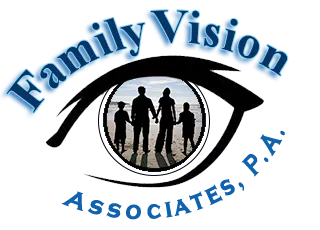
Can Contact Lenses Protect Your Eyes from UV Rays?
Skin cancer isn't the only harmful consequence of sun exposure. Exposure to ultraviolet (UV) light also increases your risk of several eye diseases and conditions. Choosing contact lenses that offer built-in UV protection can reduce your chances of developing some sun-related eye conditions.
How Does UV Light Affect the Eyes?
UV light exposure increases your risk for these diseases and conditions:
- Cancer. You may be more likely to develop squamous or basal cell skin cancers if you don't protect your eyes from the sun's rays. These types of skin cancers can cause cancerous growths on your eyelids or the skin surrounding your eyes.
- Cataracts. Sun exposure is also a factor in cataract development, a condition that happens when the clear lens inside your eye becomes cloudy. Cataracts make colors look faded and causes cloudy or blurry vision, light sensitivity, and glare.
- Growths. Exposure to ultraviolet light increases your risk for developing growths on the conjunctiva of your eyes. These growths can affect your vision if they cover your cornea.
- Macular Degeneration. Sun exposure is a risk factor in macular degeneration, an eye disease that affects your central vision.
- Photokeratitis. Photokeratitis is a type of sunburn that affects the eyes. Symptoms include tearing, redness, and sensitivity to light. Although symptoms only last a few days, the condition can be very painful.
- Presbyopia. UV light exposure may also raise your risk of presbyopia. This age-related vision problem happens when the eye's lens becomes less flexible, which makes it difficult to focus on close objects without reading glasses. According to a 20/20 article, people in countries located closer to the equator develop presbyopia earlier than people in less sunny locations. The article notes that the average age people develop presbyopia in India (latitude 10 - 30) is 37, while people in England (latitude 51 - 54) don't need reading glasses until about age 43.
Protecting Your Eyes with Contact Lenses
Several manufacturers offer contact lenses with built-in UV protection. Some companies even sell photochromatic contact lenses that darken when exposed to the sun and lighten when the wearer returns inside.
Wearing lenses with UV protection may reduce your risk of certain eye diseases, like macular degeneration, cataracts, and presbyopia. The lenses could even delay the onset of presbyopia, according to a study published in Contact Lens and Anterior Eye. The study authors noted that wearing contact lenses that block ultraviolet light could help maintain the lens' focusing abilities, which might delay presbyopia.
Two types of UV contact lenses are available: Class 1 and Class 2. Class 1 contact lenses block 90% of UVA rays and 99% of UVB rays, while Class 2 lenses offer protection from 70% of UVA rays and 95% of UVB rays, according to a research study published in the Journal of Ophthalmic and Vision Research.
Pair Contact Lenses with Sunglasses for Ultimate Protection
Although contact lenses certainly reduce your risk of diseases that could damage your eyesight, they don't provide complete protection. The American Academy of Ophthalmology points out that the lenses don't protect the conjunctiva, the eyelids or the skin around the eyes. Wearing sunglasses with your contact lenses offers a simple way to fully protect your eyes from the sun's rays.
When you shop for sunglasses, pay attention to the sun protection information on the tag. If the glasses don't block 99 to 100% of both UVA and UVB rays, keep shopping. Prescription sunglasses, available from your optometrist, offer an excellent option when you'll be spending time outdoors but don't want to wear your contact lenses.
Talk to your eye doctor about the sun protection benefits of contact lenses during your next visit. Give our office a call if you're ready to make an appointment or aren't sure if your current lenses offer ultraviolet protection.
Sources:
20/20: Presbyopia & Sun Exposure, 10/2018
https://www.2020mag.com/article/presbyopia-and-sun-exposure
Science Direct: Contact Lens and Anterior Eye: International Multi-Centre Study of Potential Benefits of Ultraviolet Radiation Protection Using Contact Lenses, 12/2022
https://www.sciencedirect.com/science/article/pii/S1367048422000315
Journal of Ophthalmic and Vision Research: Do UV-Blocking Soft Contact Lenses Meet ANSI Z80.20 Criteria for UV Transmittance?, 10 - 12/2015
https://www.ncbi.nlm.nih.gov/pmc/articles/PMC4795395/
Review of Optometry: 5 Patients Who Need UV Protection and Why, 3/15/2014
https://www.reviewofoptometry.com/article/5-patients-who-need-uv-protection--and-why
All About Vision: How Photochromic Contacts Shield Your Eyes from Ultraviolet Rays, 3/29/2020
https://www.allaboutvision.com/contacts/do-photochromic-contacts-protect-from-uv/
National Eye Institute: Protecting Your Eyes from the Sun's UV Light, 7/5/2022
https://www.nei.nih.gov/about/news-and-events/news/protecting-your-eyes-suns-uv-light
